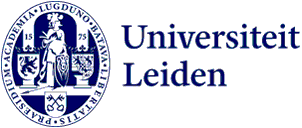
How sustainable is your coffee cup? Professor Jeroen Guinée finds out
What is the environmental impact of the fish on our plates? And is an electric car really more sustainable when we include the generation of electricity? Jeroen Guinée maps the environmental impact of products and technologies. He analyses them from raw material to waste disposal. He was appointed Professor of Life Cycle Assessment on 1 March.

On the table are three cups: a paper one, a stone one and one made of reusable plastic. 'These three cups have the same function: you can drink coffee from them. To investigate which of the three is the most sustainable, we need to look not only at the use of the cup, but at the whole life cycle,' says Guinée. 'That starts from the extraction of raw materials to its use and finally its disposal.' Of each step of the process, he quantitatively assesses the environmental impact. 'And then we can compare the overall picture.'
User behaviour also counts
Which cup is the most sustainable depends on several factors. 'It seems simple, but there are so many processes involved. To make a paper cup, for example, you need electricity. To generate that, you need steel. For all those individual processes, you then have to calculate what the emissions are.' It also depends on user behaviour. 'Suppose I want to drink coffee a thousand times, then a stone cup is probably the most sustainable. But that also depends on how well you treat the cup and how often you wash it with hot water and soap.'
How sustainable is an electric car?
We can actually apply such a life-cycle analysis (LCA) to pretty much everything: from cups to clothing and even technology. 'I've looked at fish farming for years. And agricultural products are also interesting to study.' Currently, Guinée works a lot on analysing new technologies. 'It often seems the solution to tackle sustainability issues. We then think they are green solutions, but is that true if you analyse every part of it?'
He refers to electric cars as an example. 'While using that car, no emissions are released, but that does not mean that the car does not emit anything. We must also look at the production of the battery as well as how you generate the energy to drive the car. If that comes from renewable energy, an electric car comes out better. But if you generate the electricity from fossil fuels, as we often do now, the total emissions of the cars are quite high.' However, it is important to put an LCA of electric cars in the right context, says Guinée. 'We shouldn't forget that it is part of the energy transition. We should look at it within that context.'
EU-studies to explore new technologies
The expertise of life cycle analysts has been in high demand in recent years. 'We now have several EU projects running where we investigate new technologies. Our job is to check whether the technology or product is indeed more sustainable than its predecessor.' It is important to do that analysis as early in the process as possible, says Guinée. 'Safe and sustainable by design, as it is called. Better to prevent problems than to solve them later on.'
The chair assigned to Guinée as professor is the first in this field. 'I think even the first in the world. The method and manual for life cycle assessment is designed here at the Institute of Environmental Sciences (CML). We published the world's first handbook on that. I started here as a student in 1987 and got my PhD on the subject. After that, I started teaching it. This chair is a culmination of all the CML's work in this field.'
A scientific authority
Scientific director of the CML Martina Vijver therefore considers the appointment fully deserved. 'Jeroen is a scientific authority on Life Cycle Assessment. He wrote the groundbreaking "Handbook on Life Cycle Assessment - operational guide to the ISO standards". This handbook is widely used nationally and internationally by scientists and researchers within consulting firms, companies and government agencies.'
Guinée's work is therefore having a major impact on new environmental methodologies, says Vijver. 'And in addition, he inspires us to think about how to better apply Life Cycle Assessment. As a result, CML is making an important contribution to the Dutch National Research Agenda.'
